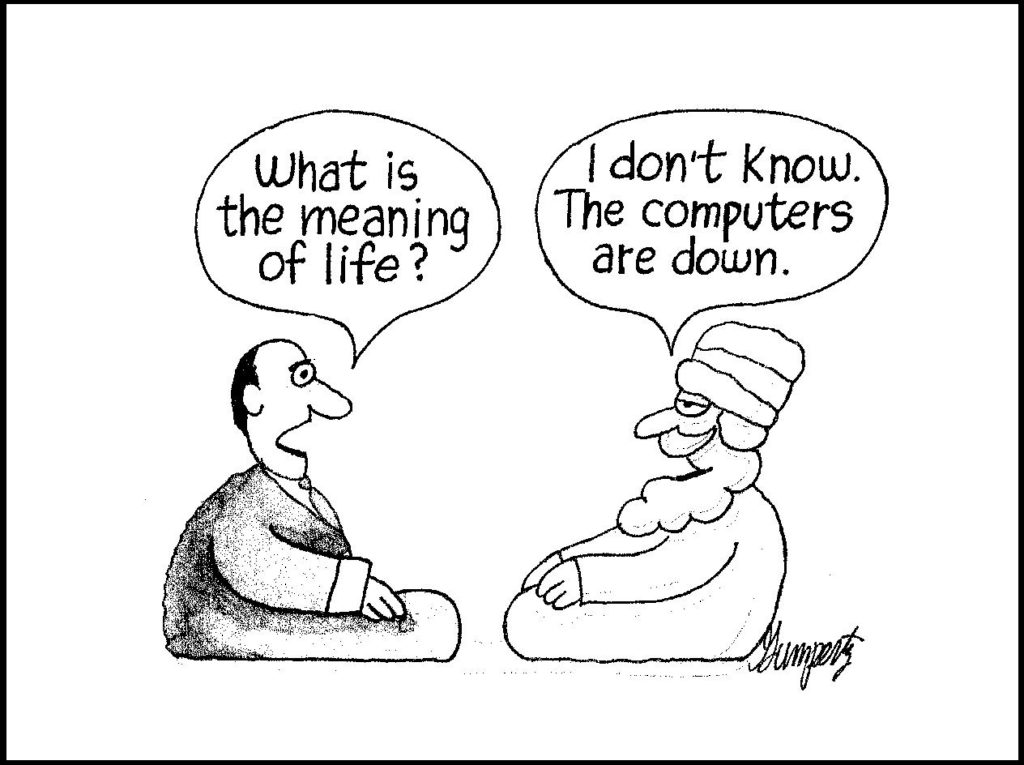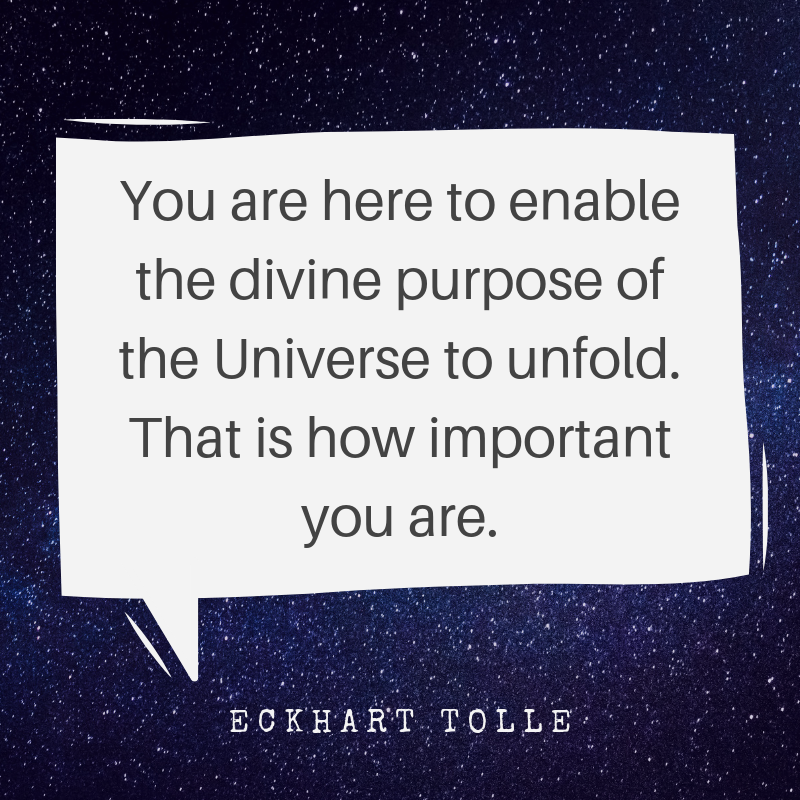
What we don’t realize is that living with purpose is a state of ‘being’ and not ‘doing.’ We should strive toward our purpose because of the type of person we will become on the journey, not only because of the outcome. Find out how you can cultivate the right attitude and practices to live your life with purpose and experience the peace and joy within. (Estimated reading time: 6 minutes)
“Life is so short. To just ‘do things’ is insane. Live with a purpose. Live for a reason.”
— John Piper
The phrase “living with purpose” evokes a variety of emotions. Some find it cliché while others find it intimidating and grandiose. They wonder if they must be the next Gandhi, Mandela, or Mother Teresa to reach that level.
The confusion happens because we limit our definition of purpose to being solely action-based. We feel the need to attach it to a verb or vocation that will bring us fame and fortune.
What we don’t realize is that living with purpose is a state of ‘being’ and not ‘doing.’ We should strive toward our purpose because of the type of person we will become on the journey, not only because of the outcome. The lessons we learn along the way is where the magic lives.
Living with purpose is a sensibility and a state consciousness that influences our approach to everything we do – from the way we brush our teeth to how we show up to a board meeting. It’s the answer to that pervasive existential question we all have at some point: “Why am I here?”
Humans are meaning-makers. Since ancient times our ancestors have been weaving narratives and creating connections to make sense of life. They expressed their insights visually through cave paintings and hieroglyphics, or text on manuscripts and tablets.

That’s why stories, folklore, and mythologies touch us deeply – they connect the dots to what would otherwise seem like random and haphazard events. Living purposefully comforts us because it gives our lives meaning – a need that is fundamental to our spiritual wellbeing.
Purpose is personal and unique to all of us. It’s something only we can discover through self-reflection. Joseph Campbell once said, “Life has no meaning. Each of us has meaning and we bring it to life. It is a waste to be asking the question when you are the answer.”
Not everyone is willing to mine the depths of their lives to live with purpose. It’s easier to live on the surface and follow the herd than to do the inner work that often requires brutal self-honesty. There are plenty of people who just sleep-walk through the day-to-day, feeling empty and bored like the walking dead – ignorant of a deeper reality.
Many feel they can remedy the emptiness with medication, or addictive substances and behaviors: drugs, alcohol, shopping, gambling, or dysfunctional relationships. We might even try to buy our way into happiness, filling our lives with material possessions and glamour. But in the end, none of these satisfy our need for meaning.
Our purpose isn’t a need of the mind or the ego; it’s the need of the soul. Until we recognize that, we’ll never feel content and whole. We’ll always feel like something is missing from our lives.

Science backs up the efficacy of living with purpose. According to a study done by social psychologist Roy Baumeister, meaning is not about transcending the self but also about transcending the present moment. In other words, happiness is a fleeting emotion of momentary pleasure, while meaning and purpose are enduring.
“Happiness is not generally found in contemplating the past or future,” the researchers write. People who think more about the present are happier, but people who spend more time on thinking about the past and the future experience more meaning, but are often less happy.
When negative events occur, people with clearly defined purposes experience increased satisfaction, because they have the reflective capabilities to see the bigger picture and find meaning in their suffering. Those focused on the present moment have short-term happiness, but find it harder to cope with challenges.
Feeling engaged with life and striving to live with purpose is more desirable than living a life based only on seeking pleasure. It infuses our routines and habits with vibrancy and will put a spring in your step when you’re excited to wake up to start your day. It drives you to be the best you can be.
Here are five ways to live your life with a sense of purpose:
1. Be intentional about every choice: In our busy lives, we tend to run on auto-pilot and not give much thought to the things we do. Being intentional slows you down and brings you back to the present moment. Directing your attention to the present and knowing your more significant ‘why’ alters the quality of your experiences. With this level of awareness, you’ll experience more joy and peace because you do everything with a sense of purpose.
This includes seemingly rote tasks like washing dishes. The next time you find yourself going through the motions, stop and question your intentions and see how it connects to the bigger picture.
2. Pursue activities that have meaning: The ‘doing’ aspect of living with purpose involves knowing what is important to you: your passions, goals, and causes you care about. This gives you a future orientation and something to work toward. When considering which activities you would like to spend your time, energy, and resources on, having a sense of purpose will narrow your focus and eliminate energy drains and time-wasters that don’t fulfill you.
3. Stay true to your authentic self: It’s almost impossible to live a life of purpose when you’re not connected to your core. In this age of social media, where we all craft an idealized image of ourselves to get people’s attention, we can lose touch with our authenticity. In your personal life, there will be plenty of distractions and people who will try to derail you and turn you into something that you’re not.
Avoid anything that distracts you from your purpose and any situation that just doesn’t feel right. How will you know? You’ll feel it in your gut.
4. Make time to reflect and see the bigger picture: To gain a sense of meaning, it’s essential that we set time aside to reflect. A regular habit of self-reflection allows you to assimilate and frame your experiences. It prevents the “Groundhog Day” effect, where our days just end up blending into one another. Self-reflection also allows you to process your feelings and thoughts, instead of having them float around in your head where they often don’t make sense. By grounding them on paper, we have a macro perspective, making it easier to navigate the minutiae.
5. Focus on giving back: Meaning is found, not from getting, but from giving. Our ultimate purpose is to use our gifts to contribute toward improving the lives of those around us. This doesn’t mean that we shouldn’t want to better ourselves and improve our circumstances, but it does mean that we realize that living with purpose is ultimately about service. Our success should be a byproduct of our dedication to a cause that’s greater than ourselves.
A singer sings not only because she’s passionate about music, but because her melodies bring joy to her listeners. A janitor sweeps the floor of a hospital not only to maintain hygiene, but so that patients live in a germ-free area and stay healthy. If you look for it, you’ll find an opportunity to contribute in everything you do.
The quality of your life boils down to the quality of your inner self. A person who sees the connectedness in their life experiences has an entirely different experience of life from those who view events as random and meaningless. The question shouldn’t be who is right and who is wrong, but who walks away with a richer and more empowered perspective. Living life with purpose will enrich you and allow you to get the most out of every single moment.
All my best on your journey,
Seline

Question for you: What are some activities that bring you a sense of purpose? What kind of emotions do you experience when you engage in them?
Did you like this post? Sign up below, and I’ll send you more awesome posts like this every week

Interesting read here. I do have a question though. you talk about persuing things that have purpose or meaning. You say to avoid time-wasters. But what if something brings you joy and makes you feel better but it is seen as a time-water or useless activity to others? I am a cancer warrior and get monthly chemo treatments. I don’t work and main poor health overall and have little energy. I like working on puzzles and those coloring posters and such. I spend hours a day working on them. Some family members say i should be doing more with my life and what time i have left. but this is what i like and is what makes me happy.
Am i just being selfish? Or is it ok to do things for yourself and not always be worried about how it helps it affects others? thanks in advance Seline.